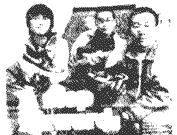
題目列表(包括答案和解析)

A.because he decided to do some research
B.when he wanted to throw away his old shoes
C.because his thirty pairs of shoes were all very old
D.when he sent the shoes to the recycling factory
- When is the National Day (國慶節(jié)of the PRC?
- It’s ________.
A. on 1st October B. in 1st October
C. on the 1st of October D. in the 1st of October
| A.it was in the cool mountain village he was going to |
| B.the boss of the inn was kind to him |
| C.the boss could wake him up at the right time |
| D.it was near the railway station |
| A.the boss had the habit (習(xí)慣) of getting up early |
| B.the boss had promised (答應(yīng)) to help him in every possible way (千方百計(jì)地) |
| C.he was afraid he would not wake up in time to catch the train |
| D.it would take him a long time to walk to the railway station |
| A.five o'clock | B.a(chǎn) quarter to five |
| C.half past four | D.a(chǎn) quarter to six |
| A.he had to buy an alarm-clock |
| B.the boss refused to wake him up |
| C.he would take another train |
| D.he had to go to the village on foot |
| A.clock would wake the student up in time |
| B.student certainly missed his train the next morning |
| C.a(chǎn)larm-clock was no use for the student |
| D.student had the alarm-clock repaired (修理) |
短文填空 根據(jù)短文內(nèi)容及首字母提示,補(bǔ)全空格內(nèi)單詞(10分)

It was Sunday morning. A butcher(屠夫) heard the doorbell and thought it must be a customer. But he was s 1. to see that a dog was coming into his shop. The dog had $10 and a note in i 2. mouth. The butcher took the note and read it. It said,“10 pork chops(排骨), please.”So the butcher took the money and p 3. a bag of chops in the dog’s mouth.
Then he q 4. closed the shop because he decided to follow the dog. He found that the dog walked across the road and went to a bus stop. When a bus a 5. , the dog checked the number and then got on the bus. After a moment, the dog s 6. up on his back paws to push the “stop” button(按鈕). The bus stopped and the dog got o 7. . Then the butcher followed it to get off the bus.
The dog ran to a house and dropped the bag in front of the front door. It then began to beat its head against the front door. After a while, a big man opened the door and began s 8. at the dog. The butcher ran up and said to the man angrily, “What are you doing? Your dog is a genius(天才).”The o 9. of the dog said loudly, “Genius? No way! I always tell him to take the keys when he goes to the stores. But he never l 10.to me!”
百度致信 - 練習(xí)冊(cè)列表 - 試題列表
湖北省互聯(lián)網(wǎng)違法和不良信息舉報(bào)平臺(tái) | 網(wǎng)上有害信息舉報(bào)專區(qū) | 電信詐騙舉報(bào)專區(qū) | 涉歷史虛無主義有害信息舉報(bào)專區(qū) | 涉企侵權(quán)舉報(bào)專區(qū)
違法和不良信息舉報(bào)電話:027-86699610 舉報(bào)郵箱:58377363@163.com